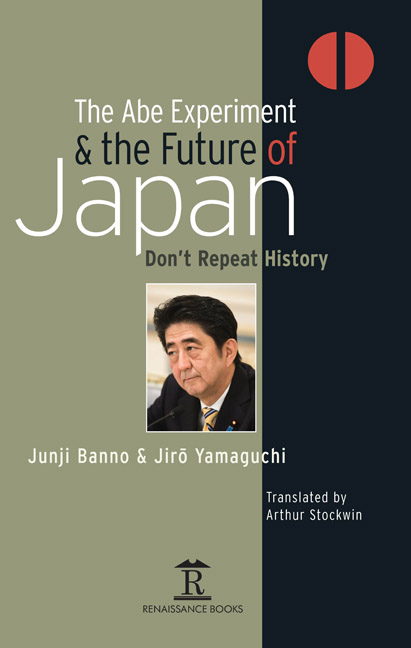Book contents
- Frontmatter
- Contents
- Foreword
- Translator’s Preface
- Conventions
- Chapter 1 Should the Aim be to Prevent Constitutional Revision?
- Chapter 2 Why was Post-war Pacifism Defective?
- Chapter 3 Is there a Political Elite in Japan?
- Chapter 4 Is the Liberal Democratic Party Really Tough?
- Chapter 5 Why Can’t We Tackle Reduction in Inequalities?
- Chapter 6 Where Should Japan Go From Here?
- Afterword
- Index
Chapter 2 - Why was Post-war Pacifism Defective?
Published online by Cambridge University Press: 30 April 2022
- Frontmatter
- Contents
- Foreword
- Translator’s Preface
- Conventions
- Chapter 1 Should the Aim be to Prevent Constitutional Revision?
- Chapter 2 Why was Post-war Pacifism Defective?
- Chapter 3 Is there a Political Elite in Japan?
- Chapter 4 Is the Liberal Democratic Party Really Tough?
- Chapter 5 Why Can’t We Tackle Reduction in Inequalities?
- Chapter 6 Where Should Japan Go From Here?
- Afterword
- Index
Summary
WHY THE ROOTS OF ‘PEACE’ ARE SHALLOW
Banno. I have long believed it wrong that post-war democratic discourse has only talked about peace. There is absolutely no tradition of social democracy, tackling issues of equality, and I have always been saying that there is no future in just advocating peace. But if we look at the present situation, peace has become a serious subject. So I think that we now need to rethink peace, which liberals since the war have talked about for about seventy years.
Even so, today of all days, those people who throughout the period since the war have fed on a diet of peace, are talking about the Senkaku islands as Japan's own territory. They say this, and then say that they support the Constitution. I feel that just defending the Constitution does not constitute a peace policy. Isn't this why peace forces are withering?
When I speak about Japan-China friendship, this is not just a question of defending the Constitution, but of defending peace itself The fact that a noisy minority is now spreading is partly because those who want to defend the Constitution have stopped thinking. In fact, if we want to defend peace, we need not only to protect article 9, but also to maintain good relations with our neighbours.
Yamaguchi. Peace was a major value in post-war democracy and everybody came to be content with being at peace, but acceptance of peace was no stronger than that.
But in a situation where territorial disputes have been growing in intensity, and our neighbour China has been increasing its economic and military power, I think we should acknowledge the present reality that we cannot simply sustain the post-war peace framework.
Banno. If we ask why the roots of peace have been so shallow, I think a major reason is that Japanese people did not really accept defeat in the war.
In August 1945, they flipped a switch and said that now we have peace. Moreover, the reason I think the peace of postwar Japan was irresponsible is that having arbitrarily invaded other countries, the moment the war finished the slogan was ‘dont’t send your sons into battle again’,and this was surely unacceptable.
- Type
- Chapter
- Information
- The Abe Experiment and the Future of JapanDon't Repeat History, pp. 27 - 48Publisher: Amsterdam University PressPrint publication year: 2016



